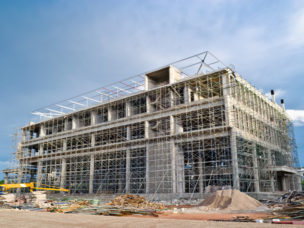Stay in the know
Subscribe to the Real Estate Blog and we’ll send you an email each time something new is posted.
Subscribe to the Real Estate Blog and we’ll send you an email each time something new is posted.
Blogs
Real Estate Blog
What Real Estate Developers Should Know About Affordable Housing
The return of real estate development to the Boston area creates a renewed focus on the complex legal framework associated with Boston development projects. One particular hurdle developers familiarize themselves with are requirements by the City of Boston to include affordable housing components in their projects. Because affordable housing elements generally result in lower returns on investment, the City of Boston and Mayor Thomas Menino recognized the need for government to implement affordable housing policies requiring creation of affordable housing stock in large development projects within the city.
Signed in February 2000, Mayor Menino’s Executive Order, “Order Relative to Affordable Housing,” lays out these guidelines for developers:
- Any project undertaken or funded by any agency of the city or developed on city property that proposes ten or more housing units must make no less than 10% of those units affordable to moderate-income and middle-income households.
- Any developer of private property proposing a project with ten or more housing units, and seeking relief of any kind from the Boston Zoning Code, must make 10% of the units in those projects affordable to moderate and middle-income households.
- If developers choose to include the requisite affordable units on or off-site, 50% of those units must be affordable to households earning less than 80% of the metropolitan-area median income and no more than 50% of those units may be affordable to households earning between 80% and 120% of the metropolitan-area median income
- Units must be comparable in size and quality to the average of all market-rate units in the development and developers will need to ensure long term affordability of these units.
- The preference is for on-site units, however, if a developer can demonstrate a reason they cannot provide on-site units, they can instead provide a number of affordable units off-site, at a different location, equal to 15% of the total number of on-site units in the project, or they can make a cash contribution to an affordable housing fund in an amount equal to an estimate of the development cost for each affordable unit of housing multiplied by 15% of the total number of units within the proposed project.
- What constitutes an “affordable unit” is influenced by federal guidelines.
- The Boston Redevelopment Authority reviews and approves proposals for meeting affordable housing goals.
For more information on meeting affordable housing guidelines, please refer to a recent article in Banker and Tradesman, “What Every Developer Should Know About Affordable Housing.”



